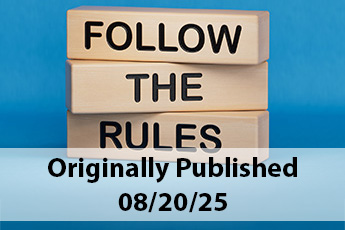There are objects that people used to think protected them from poisons, including opals, emeralds, and sharks' teeth. Wouldn't it be nice if it were that easy to protect against fraud?
It's an unfortunate reality that fraudsters remain relentless in times of crisis. It's imperative for community financial institutions (CFIs) to be on alert for possible warning signs because, oftentimes, customers will be targeted directly.
With this in mind, we direct your attention to a recent advisory by the Financial Crimes Enforcement Network (FinCEN) about pandemic-related impostor scams and money mule schemes. Here are some red flags for CFIs to share with customers.
- Contact by an alleged government representative for the purpose of verifying, processing, or expediting a customer's economic impact payment.
- Receipt of what seems to be a check or prepaid debit card from the US Treasury, but has suspicious characteristics. For instance, the stimulus check may be smaller than expected or recipients may be given an email or phone number to contact where they are then asked to confirm their personal information, purportedly to get the rest of the benefit.
- Official-looking correspondence from email addresses that don't match the name of the sender or use ".com" or ".biz" instead of ".gov" or ".mil," which are official government domains.
In addition, CFIs should be aware of warning signs associated with money mule schemes. According to FinCEN, a money mule is "a person who transfers illegally acquired money on behalf of or at the direction of another." These may include:
- The receipt of abnormal or out-of-character transactions to a customer's personal bank account, such as frequent international deposits or large sums of convertible virtual currency. When pressed, the customer may deny requests for KYC documents or provide cagey responses about the source of the sudden and unusual income.
- Newly opened accounts where money is quickly transferred out and the customer is not forthcoming when the bank requests additional documentation or information.
- Multiple state unemployment insurance checks (issued from one or more states) to one or multiple accounts at an institution from the same disbursement period.
Space constraints prevent us from going into further detail on these and other schemes. But suffice it to say that not only should CFIs have their guard up, but they also should keep customers up-to-date as new threats materialize. When fraud is suspected, follow your protocols closely, as always. CFIs should keep careful documentation and fill out suspicious activity reports, as appropriate, in accordance with FinCEN's filing instructions. For additional questions or concerns, reach out to FinCEN at frc@fincen.gov. Stay informed and stay safe.




